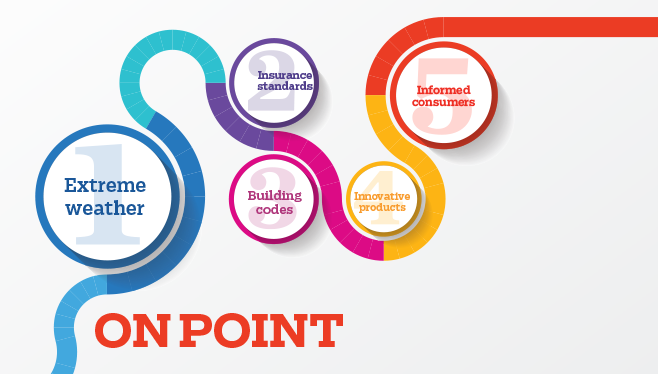After years of lobbying from NRCA and other business groups, the Health Insurance Tax has been repealed. NRCA secured a major victory in fiscal year 2020 appropriations legislation negotiated by Congress and the Trump administration. First created by the Affordable Care Act in 2010, the HIT negatively affected small- and mid-sized businesses, their employees and self-employed individuals. Fortunately, 2020 will be the last year the HIT will be in place as the repeal takes effect starting in 2021.
Health Insurance Tax
The HIT was one component of more than $500 billion in taxes included in the ACA to help offset the legislation’s cost to taxpayers and took effect in 2014. The tax is levied on health insurance premiums paid to insurance companies operating in the group and individual insurance markets based on the companies’ market shares. But insurance companies pay the tax only in a nominal sense. Ultimately, this tax is passed on to smaller businesses, their employees and self-employed entrepreneurs who purchase fully insured health care plans. Employers that self-fund health care benefits for their employees are not affected because they don’t purchase coverage in fully insured markets.
Path to victory
The nonpartisan Congressional Budget Office confirmed in 2011 the tax “would be largely passed through to consumers in the form of higher premiums for private coverage.” According to a 2017 study conducted by global management consulting firm Oliver Wyman, the HIT was estimated to raise $260 billion from 2020 to 2029. On average, a family of four would experience an increase of more than $5,000 for their health care premium over 10 years. In 2020 alone, the HIT will add an estimated $16 billion to the cost of coverage for individuals, small businesses, families and Medicare Advantage seniors.
In 2011, NRCA joined other business groups participating in a Stop the HIT coalition to lay the foundation for eventual repeal of the tax. The HIT was collected in 2014, 2015 and 2016, but the coalition was successful when Congress delayed the tax for 2017 and voted to suspend the tax for 2019. Although the HIT will be collected in 2020, NRCA and the coalition are pleased the tax will cease in subsequent years.
In 2019, Reps. Ami Bera (D-Calif.), Josh Gottheimer (D-N.J.), Kenny Marchant (R-Texas) and Jackie Walorski (R-Ind.) reintroduced legislation to delay the HIT for two years. The Health Insurance Tax Relief Act of 2019 (H.R. 1398) would have suspended the HIT for 2020 and 2021. A similar bill (S. 172) was introduced in the Senate by Sens. John Barrasso (R-Wyo.), Cory Gardner (R-Colo.), Doug Jones (D-Ala.), Tim Scott (R-S.C.), Jeanne Shaheen (D-N.H.) and Kyrsten Sinema (D-Ariz.). Both bills enjoyed strong bipartisan support and cleared the way for the Jobs and Premium Protection Act (H.R. 2447) to be introduced in the House by Reps. Anthony Brindisi (D-N.Y.) and Marchant in May 2019. The strong bipartisan support generated for the bills signaled to Congressional leadership the time was right to enact a permanent end to the tax.
As Congress began negotiating appropriations legislation for fiscal year 2020, NRCA and other business groups in the coalition strongly advocated for repeal of the HIT. NRCA staff met with Congressional leadership and mounted a communications effort that included a full-page ad in Capitol Hill newspapers such as Roll Call.
The efforts paid off when a full repeal of the HIT was included in the final appropriations legislation approved by Congress. The Stop the HIT coalition issued a statement, saying in part: “We thank Congress for working together in a bipartisan manner to advance legislation aimed at making health care more affordable for hardworking Americans. We applaud their commitment to advancing bipartisan, meaningful reforms to support consumers and address one of the key drivers of rising health care costs.”
More to come
Nearly a decade of advocacy efforts culminated in relief from rising health insurance premiums for employers and self-employed individuals. Dedicated to continual improvement of the business climate, NRCA remains committed to helping roofing industry employers grow their businesses and provide family-sustaining jobs that contribute to the economy.
Teri Dorn is NRCA's director of federal affairs.
This column is part of Rules + Regs. Click here to read additional stories from this section.



